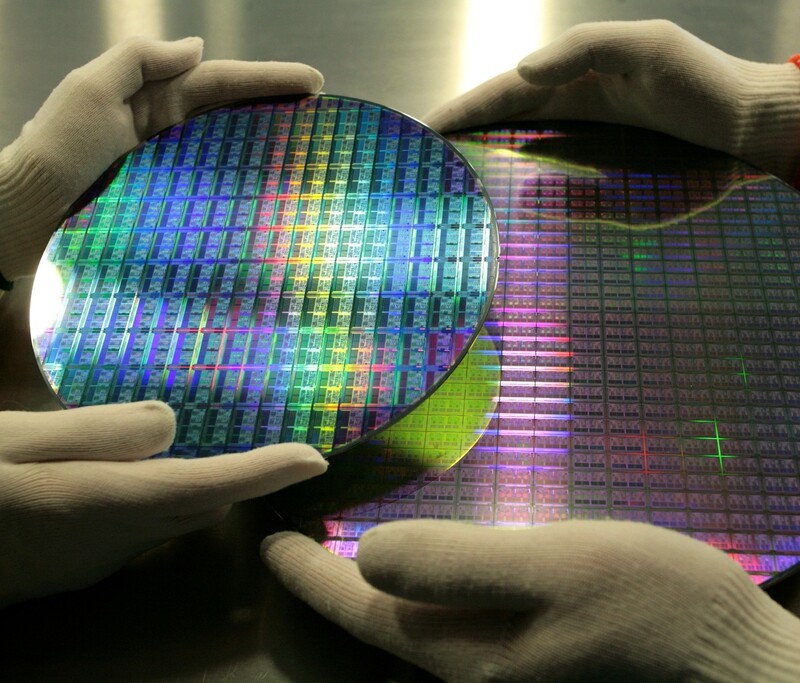hankyoreh
Links to other country sites 다른 나라 사이트 링크
Samsung facing complaints from Chinese companies over rising semiconductor prices

Complaints by Chinese smartphone companies over increases in Samsung Electronics semiconductor prices have prompted Chinese government officials to submit an opinion to Samsung, the Chinese economic daily 21st Century Business Herald reported on Dec. 22. The National Development and Reform Commission (NDRC), which oversees China’s economic policies, has already “invited Samsung for discussions” on the issue after recently taking an interest in the continued rise of semiconductor prices, the newspaper said.
An invitation for discussions is the first official measure in formal investigations. But the newspaper’s online edition substituted the phrase “communicated with Samsung” later that evening.
The electronics news outlet EE World also reported that the NDRC was recently considering examining Samsung Electronics, SK Hynix, and the US company Micron for potential price-fixing discussions. Both Samsung Electronics and SK Hynix said they had not been officially investigated or received any notification. But the move by Chinese authorities over the issue of semiconductor prices is seen as unprecedented.
According to the market research firm DRAMeXchange, the DRAM semiconductors dominated by Samsung Electronics and SK Hynix sold for US$3.59 per DDR4 gigabyte as of November – more than double the US$1.31 price in June 2016. As the largest single smartphone market in the globalized world, China’s smartphone companies consume 50–60% of the world’s mobile memory semiconductors. Together, Samsung Electronics and SK Hynix account for 75% of the global DRAM market.
“As the world’s biggest electronics producer and consumer market, China faces the greatest pressure from this rise in prices, but PC and mobile phone business have almost no say in the increase,” the 21st Century Business Herald said, expressing the current disgruntlement on the Chinese side. There is speculation that the move by Chinese authorities may be their way of pressuring South Korean semiconductor companies on behalf of Chinese businesses.
While China did announce ambitious plans last year to achieve a “rise” in the semiconductor field through the equivalent of 168 trillion won (US$156 billion) in investment over ten years, observers predict some time will be needed before they yield results.
Because of the global shortage of memory semiconductors, many are skeptical that the complaints from Chinese businesses will lead to practical price regulations within China.
“It is not clear at present whether an anti-monopoly investigation will be launched,” the 21st Century Business Herald reported.
By Kim Oi-hyun, Beijing correspondent and Choi Hyun-june, staff reporter
Please direct questions or comments to [english@hani.co.kr]

Editorial・opinion
![[Column] Park Geun-hye déjà vu in Yoon Suk-yeol [Column] Park Geun-hye déjà vu in Yoon Suk-yeol](https://flexible.img.hani.co.kr/flexible/normal/500/300/imgdb/original/2024/0424/651713945113788.jpg) [Column] Park Geun-hye déjà vu in Yoon Suk-yeol
[Column] Park Geun-hye déjà vu in Yoon Suk-yeol![[Editorial] New weight of N. Korea’s nuclear threats makes dialogue all the more urgent [Editorial] New weight of N. Korea’s nuclear threats makes dialogue all the more urgent](https://flexible.img.hani.co.kr/flexible/normal/500/300/imgdb/original/2024/0424/7317139454662664.jpg) [Editorial] New weight of N. Korea’s nuclear threats makes dialogue all the more urgent
[Editorial] New weight of N. Korea’s nuclear threats makes dialogue all the more urgent- [Guest essay] The real reason Korea’s new right wants to dub Rhee a founding father
- [Column] ‘Choson’: Is it time we start referring to N. Korea in its own terms?
- [Editorial] Japan’s rewriting of history with Korea has gone too far
- [Column] The president’s questionable capacity for dialogue
- [Column] Are chaebol firms just pizza pies for families to divvy up as they please?
- [Column] Has Korea, too, crossed the Rubicon on China?
- [Correspondent’s column] In Japan’s alliance with US, echoes of its past alliances with UK
- [Editorial] Does Yoon think the Korean public is wrong?
Most viewed articles
- 1[Column] Park Geun-hye déjà vu in Yoon Suk-yeol
- 2N. Korean hackers breached 10 defense contractors in South for months, police say
- 3Will NewJeans end up collateral damage in internal feud at K-pop juggernaut Hybe?
- 4Kim Jong-un expressed ‘satisfaction’ with nuclear counterstrike drill directed at South
- 5[Editorial] New weight of N. Korea’s nuclear threats makes dialogue all the more urgent
- 6[Cine feature] A new shift in the Korean film investment and distribution market
- 7[Column] ‘Choson’: Is it time we start referring to N. Korea in its own terms?
- 8[Column] The clock is ticking for Korea’s first lady
- 9[Editorial] Japan’s rewriting of history with Korea has gone too far
- 10Thursday to mark start of resignations by senior doctors amid standoff with government